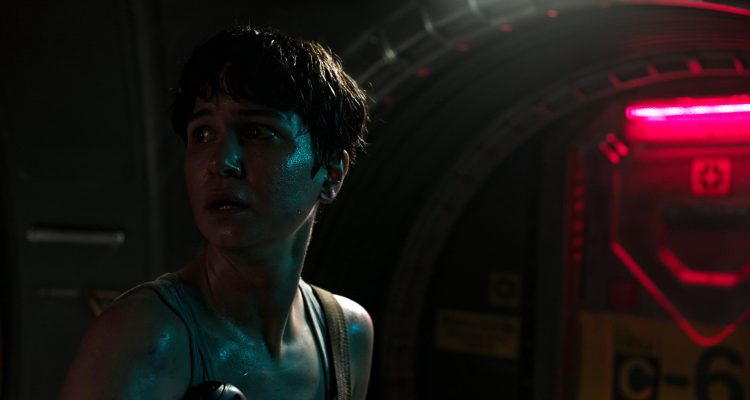You can be skeptical all you want: director Ridley Scott has a game plan and he’s digging his heels into the playbook he designed. After the critical dressing-down of his “Alien” prequel “Prometheus,” one could imagine the filmmaker might pull away from that film’s uneven exploration of deities, creationism, and alien origins. Instead, with his new film, “Alien: Covenant,” Scott leans deeper into its predecessor’s philosophical preoccupations by making a direct and resolute continuation of the judgmentally received “Prometheus” story. Old people tend to be set in their ways, and in the case of the 79-year-old Scott, ‘Covenant’ reads like a “f*ck you” to the haters and an obdurate doubling down of intention.
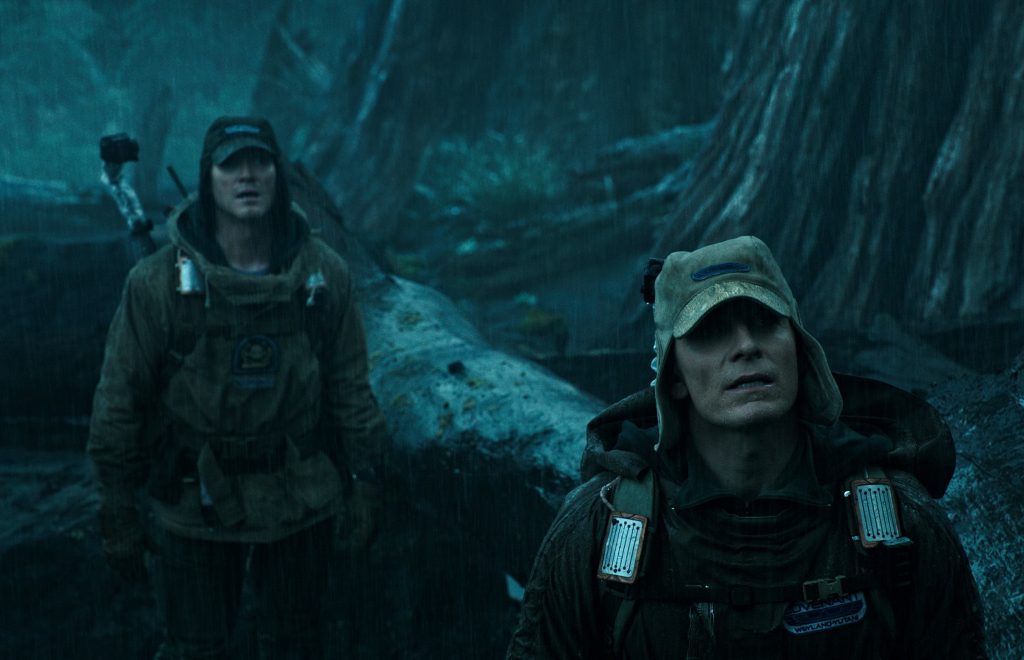
Once again playing with the ideas of a unforgiving, indifferent God and the savage pestilence of primal species, ‘Covenant’ takes place 10 years after the events of “Prometheus,” and unhurriedly reveals a new cast and crew, setting up a new narrative framework and hinting at the fate of android David (Michael Fassbender) and Dr. Elizabeth Shaw (Noomi Rapace). Meanwhile, this crew of colonists (led by Katherine Waterston) and soldiers are onboard the good ship Covenant, an exploration vessel charting a course to a new inhabitable planet. Through random plot machinations (space debris!), the Covenant is compromised; many of its crew are killed; and the survivors, awakened from cryo-sleep, are left to pick up the pieces emotionally and otherwise (a cameo in the middle of this makes for some unintentional laughs during what are supposed to be somber moments).
READ MORE: 2017 Summer Movie Preview: Blockbusters And Beyond
Led by a new Captain and a man of faith (Billy Crudup), and spiritually bruised by the death of their colleagues, the Covenant crew decides to detour from their it-takes-seven-years-to-get-there destination in favor of investigating a nearby planet broadcasting a mysterious human signal. And so begins the familiar and expendable “ten little Indians” formula of all “Alien” movies, but in service of something much more cerebral and intriguing. Come for the chestbursters, the movie says, and stay for the deeper meditation on cruel gods, mere mortals, and creators gone mad.
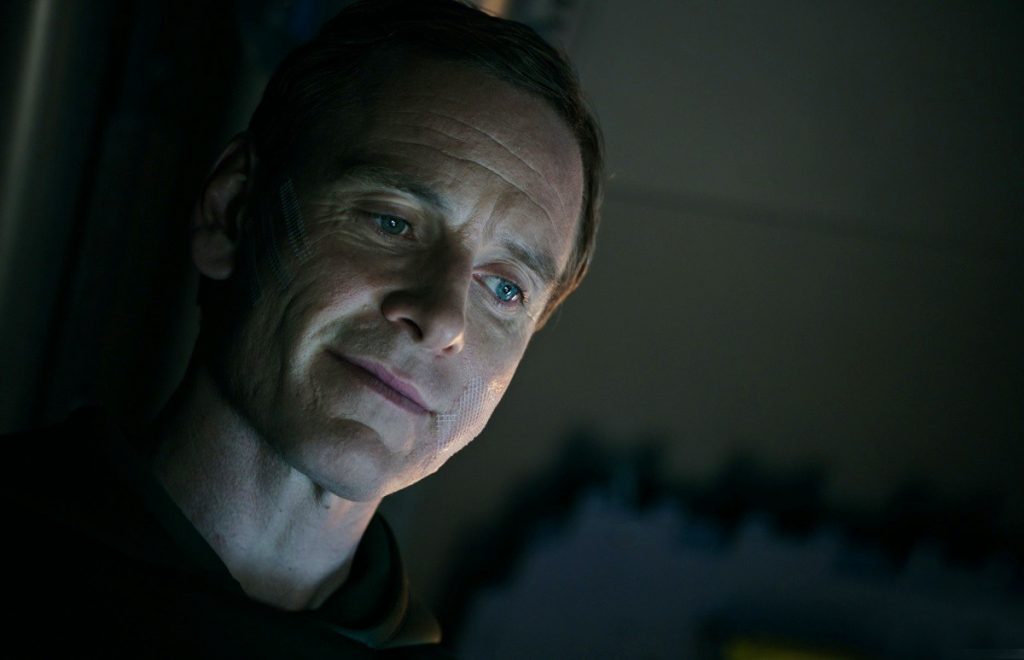 Not so interested in his own plot or characters, Scott exploits that conventional ‘Alien’ story as a Trojan Horse means to explore the roots of the tree of life, in the process producing a harsh indictment of humanity. While it remains to be seen if hardcore ‘Alien’ fans have come for or will care about Scott’s surprisingly considered ruminations on creators, usurpers, and pretentions of perfection, there’s enough visceral terror and action in ‘Covenant’ that should appease (plus a horrific shower scene to end all shower scenes). But it’s clear Scott’s interests lay in a much bigger picture than aliens decapitating unwitting humans, and arguably one that hasn’t been fully revealed yet (that’s what franchises are for).
Not so interested in his own plot or characters, Scott exploits that conventional ‘Alien’ story as a Trojan Horse means to explore the roots of the tree of life, in the process producing a harsh indictment of humanity. While it remains to be seen if hardcore ‘Alien’ fans have come for or will care about Scott’s surprisingly considered ruminations on creators, usurpers, and pretentions of perfection, there’s enough visceral terror and action in ‘Covenant’ that should appease (plus a horrific shower scene to end all shower scenes). But it’s clear Scott’s interests lay in a much bigger picture than aliens decapitating unwitting humans, and arguably one that hasn’t been fully revealed yet (that’s what franchises are for).
What further captivates, even in a sometimes patchy film, is how ‘Covenant’ subverts the hero-character paradigm of ‘Alien’ films while still maintaining the trope audiences know well. The surface movie is a group of explorers discovering a paradise lost that turns out to be hell on earth and facilitates the story of Daniels’ (Waterston) transformation into a scared but brave action hero.

Yet “Alien Covenant” is really told through the eyes of the two non-humans and their distinguishing perspectives: Walter, the 2.0 synthetic (Fassbender), and his doppelgänger David (Fassbender). David’s assessment of humanity isn’t kind, viewing them as the same kind of pathogen that infects everyone on this alien planet. Disdained in “Prometheus” by his crewmates, David’s evolution to human contempt and simultaneously conflicting empathy for his friend Elizabeth Shaw is creepily absorbing. Forget that badass female lead; David — the calculated figure ripping off the wings of flies with childlike curiosity — and his cold gaze is the star of this show. Probably not a surprise: Fassbender runs away with the movie.
Playing a canny long game, “Alien Covenant” opens the doors on “Prometheus,” revealing much deeper intentions than the latter film was allowed to fully demonstrate. ‘Covenant’ isn’t so much the sequel to “Prometheus” as it is the second chapter in a meatier book — chapter one makes a lot more sense once you’ve turned the page and read on. It’s a question-and-answer dynamic with more satisfaction on this end.
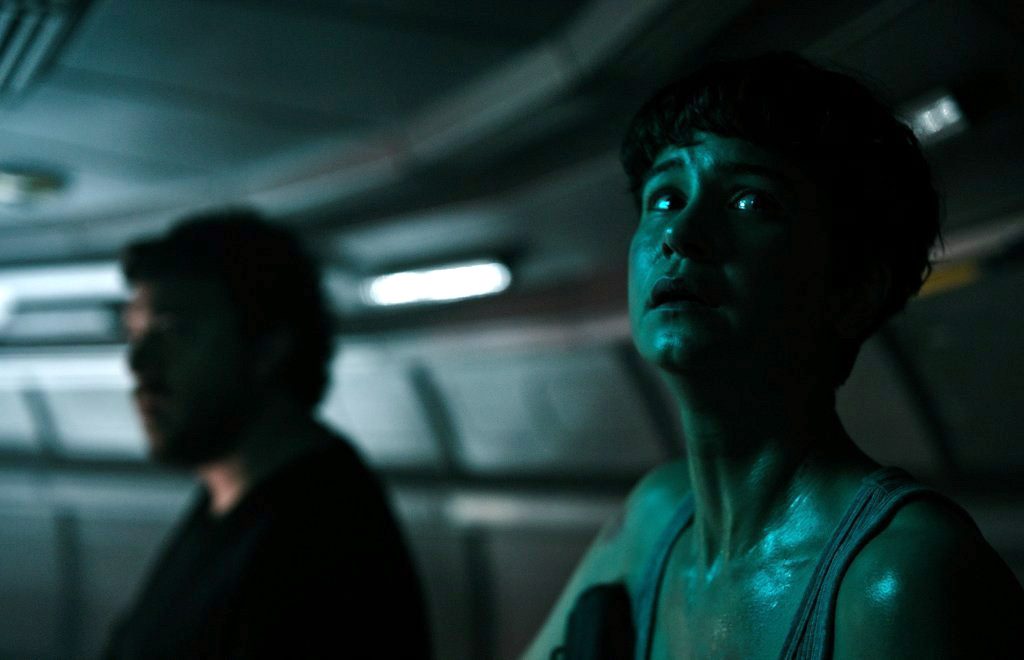
“Big things have small beginnings,” David presciently remarks in “Prometheus,” and this essentially explains the clever architecture of this entire new ‘Alien’ trilogy. “Prometheus” was just a chess pawn sacrificed for the greater good. Watching “Alien Covenant,” it’s easy to discover newfound respect for its predecessor’s ability to lay down formative tracks.
However, the flaws in Scott’s design are threefold: 1) there are no characters to invest in other than David (even Waterston’s character is sorely underwritten), 2) while the gruesome and bracing set pieces are entertainingly horrific, they feel like scenes Scott could direct in his sleep, and 3) the repetitive creationists/masters/servant themes drilled into the audience’s skull are too heavy-handed. There’s just one monologue about kings and serfs too many.
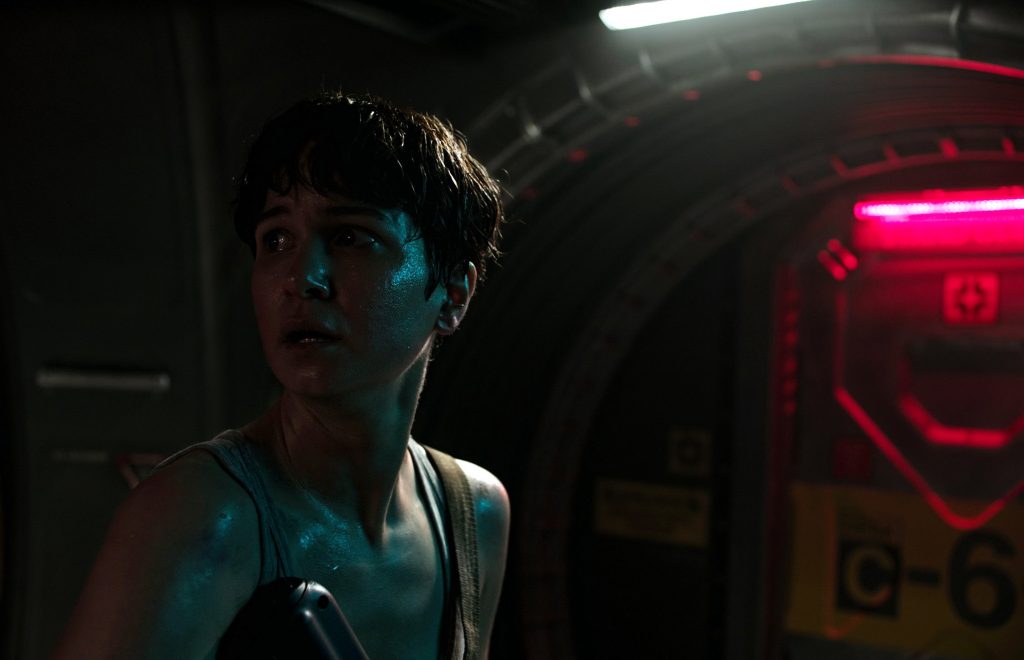
Nevertheless, David’s contemplation of life, evolution and the arrogant, post-human ideal of perfection, is fascinating stuff. Films about artificial intelligence (“Blade Runner,” “Ex Machina”) tend to maintain it’s the synthetics that are ultimately the most human of beings. Ridley Scott’s film doesn’t disagree, but the movie also asserts not even artificial beings are above adopting humanity’s worst traits of self-interest and hubris.
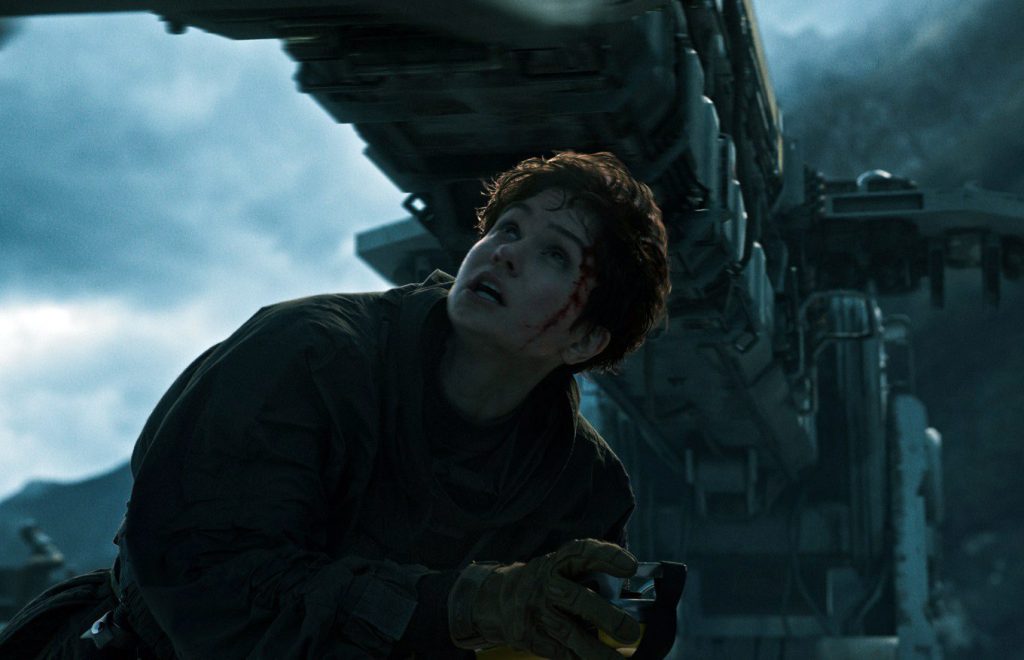
Somehow, Scott manages to balance it all: meditations on being made in God’s own image, the fan service of “Alien Origins: Xenomorphs,” and feminist agency. Balance doesn’t necessarily mean great execution, though. There’s friction with all these ideas fighting for airtime. “Prometheus” wasn’t subtle in its presentational ideas of man stealing fire and being punished for it, and ‘Covenant’ wrestles with the notions of breaking the pact with God. It’s like the flame on the end of a match burning the tips of your fingers. For maximum enjoyment, the trick is not minding it hurts. [B/B+]

